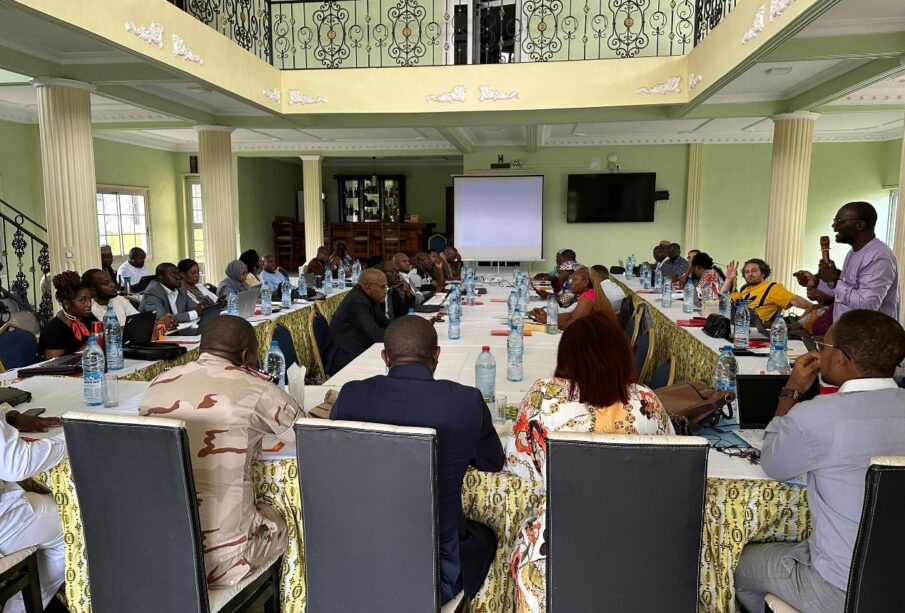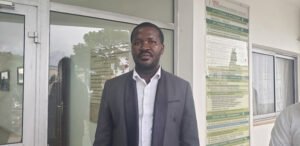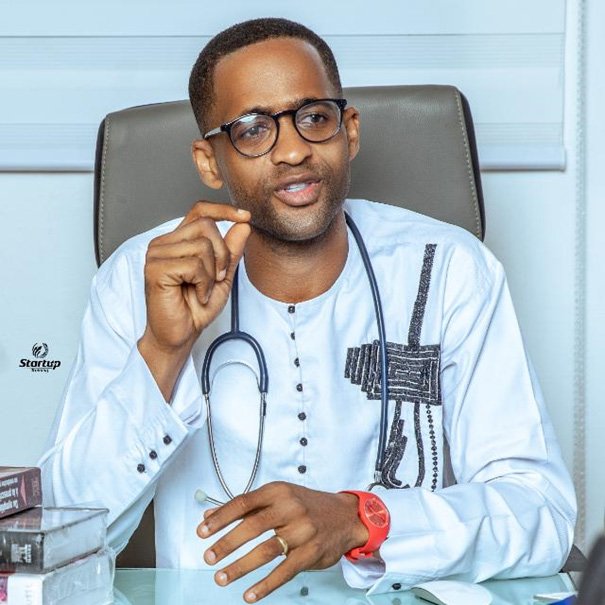Universal Health Coverage Phase I: Ebolowa, laboratory of reform

Ebolowa, workshop on better implementation of Universal Health Coverage phase I.
A strategic technical workshop was held in Ebolowa to refine the procedures manual for Universal Health Coverage (UHC) in Cameroon. At the heart of the discussions: the “Health Check”, a device designed to facilitate access to care for populations, even the most vulnerable. The experts gathered in Ebolowa worked to optimize this mechanism and simplify its terms.
Far from the clamor of the capital, it is in the studious serenity of the city of Ebolowa that an important act of Cameroonian health reform is being played out. For two days, experts, executives from the Ministry of Public Health (MINSANTE) and technical partners are looking into the future of Universal Health Coverage (UHC). Objective: to update the UHC Phase I procedures manual, a strategic document that will guide the implementation of this ambitious public policy.
Let us recall that the CSU, launched in April 2023, aims to guarantee access to essential health care for all Cameroonians, without discrimination and without causing financial difficulties. A major challenge for a country with limited resources and unequal health infrastructure.
Also read: “These are extremely fragile newborns, even in Europe the death rate remains very high.”
“The CSU is a complex project that requires perfect coordination between all stakeholders,” emphasizes Dr. Noudji, Head of the Communication and Marketing Section at the CTN-CSU, whom we met on the sidelines of the workshop. “This procedures manual is the keystone of the reform. It must be clear, precise and adapted to the realities on the ground.”
Among the key points discussed during this workshop, the “Health Check” system occupies a central place. This innovative mechanism, which aims to pre-finance care for vulnerable populations, is being closely scrutinized by experts. The objective is to evaluate its effectiveness and propose adjustments to optimize its impact.
“The ‘Health Check’ is a major step forward, but we must ensure that it truly benefits the most disadvantaged,” explains a public health expert present at the workshop. “In particular, we must simplify access procedures and strengthen control mechanisms to prevent fraud.”
The governance of the CSU is also at the heart of the discussions. Clarifying the roles and responsibilities of each actor (MINSANTE, CTN-CSU, supervisory bodies, technical partners, etc.), streamlining decision-making circuits and ensuring optimal transparency are crucial issues for the success of the reform.
The Ebolowa workshop places a large emphasis on social marketing. How can we raise awareness among populations about the benefits of UHC and encourage them to adhere to this reform? How can we combat preconceived ideas and resistance to change? The communication experts present at the workshop are working on communication strategies adapted to different audiences.
“You have to use all available communication channels, from traditional media to social networks to community leaders,” says a communication specialist. “The goal is to make UHC a national cause and mobilize the whole of society.”
Monitoring and evaluation is also a key element for the success of UHC. How can we measure the impact of the reform on the health of populations? What indicators should be used to monitor progress and identify weak points? The workshop helps to define a rigorous and relevant monitoring and evaluation framework.
Despite the progress made, the implementation of UHC faces significant challenges. Access to healthcare in rural areas remains difficult, despite efforts to strengthen health infrastructure and medical personnel. The cost of care, even for beneficiaries of the “Health Check”, can be a major obstacle for the poorest. Finally, raising awareness among populations remains an ongoing challenge.
“We must continue efforts to reduce inequalities in access to care, control costs and inform citizens about their rights and the terms of access to care within the framework of UHC,” insists a workshop participant.
The choice of Ebolowa to host this workshop is not insignificant. The Southern region faces specific health challenges, particularly with regard to access to care in rural areas and the fight against certain endemic diseases.
“By organizing this workshop in Ebolowa, the MINSANTE is showing its desire to place the CSU at the heart of public health priorities and to leave no region of the country on the sidelines of this reform,” analyzes an observer of the health scene.
The workshop to update the CSU Phase I procedures manual is a major event for public health in Cameroon. It demonstrates the government’s desire to implement this ambitious reform and improve access to care for all citizens. The conclusions of this workshop will be closely followed by all health stakeholders in Cameroon and will have a direct impact on the lives of millions of people.
Joseph Mbeng Boum














